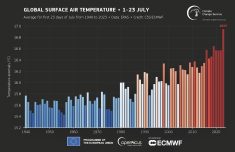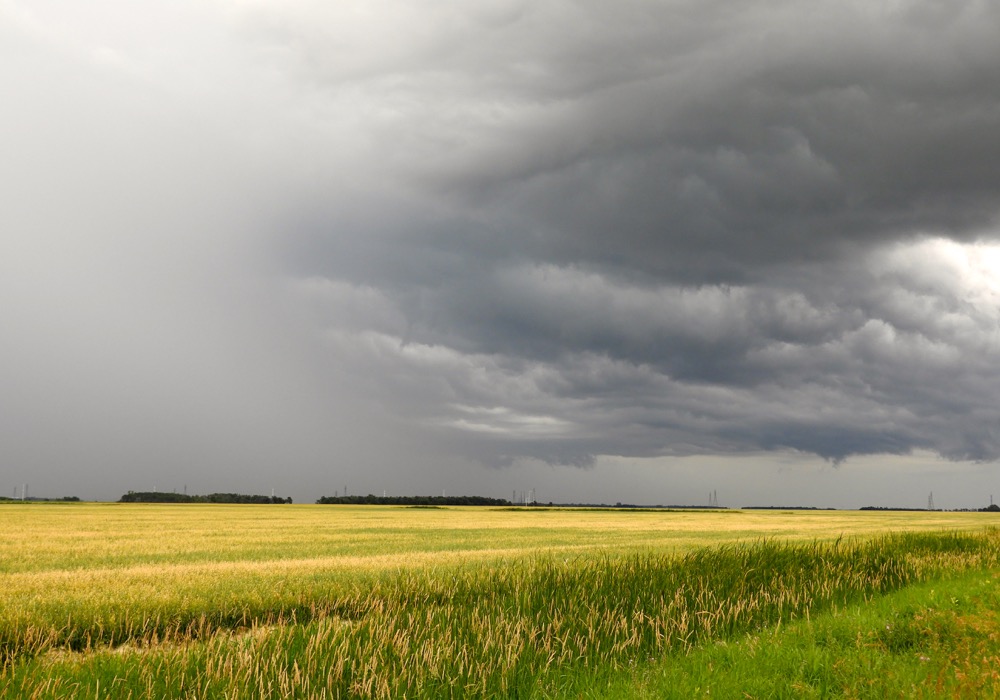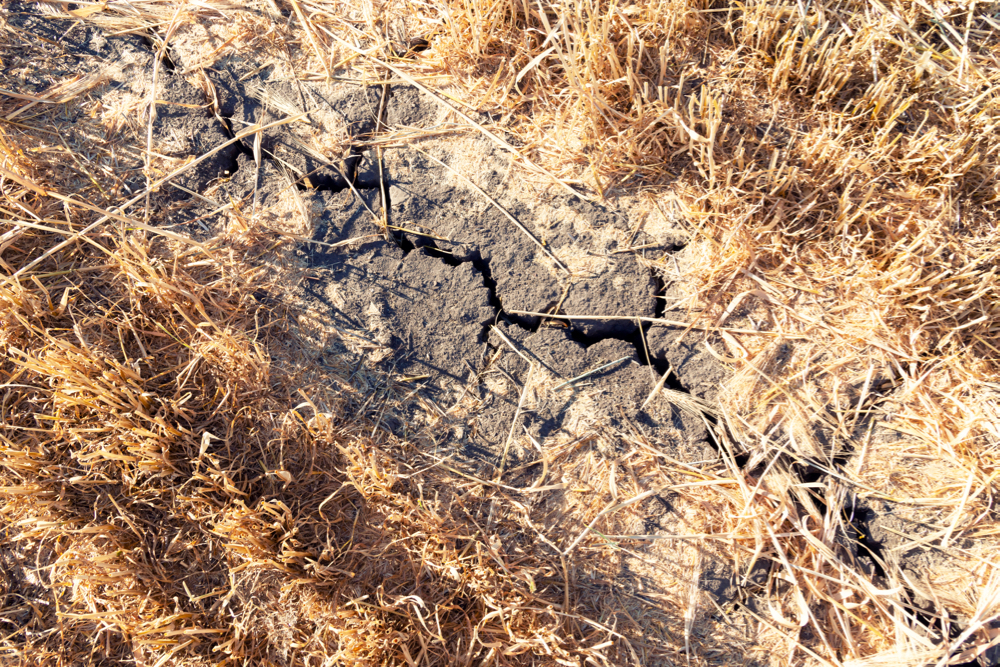Over the years, some of my weather articles have provoked or inspired various amounts of comments.
What surprised me recently was the number of emails I received about the top weather events from around the world in 2016 — in particular, several from readers who accused me of leaning too heavily towards climate change or global warming events. The writers of these emails suggested that there really isn’t any global warming and these events are basically being blown out of proportion.
I’ll have to admit, if you routinely read my articles you have probably figured out that I am a firm believer in human-induced global warming/climate change. But I have never really written a full-blown article about it. In fact, I have been accused a few times of sitting on the fence a little too much on this topic.
Read Also

What’s the weather for last half of winter 2025-2026?
A last look at 2025 temperature and precipitation on the Prairies, plus what weather forecasters expect through to spring 2026.
I think part of the reasoning behind my reluctance stems from call centre work I did early on in my career — a several-year stint working for AT&T doing Internet tech support. During our customer service training we were told to avoid three main topics when making small talk and to be careful with a fourth topic. Politics, religion, and sports were all taboo — it’s amazing how passionate and polarized people can be on those issues.
The final topic to be wary about was — you guessed it — the weather!
Although that seems safe enough, many people are quite passionate about the weather and perhaps even more importantly, many of our customers were American. If I talked about cold, snowy weather, it got customers asking where I was, and just like we are seeing in the U.S. today, some people didn’t like that I was a Canadian doing a job that they believed should be given to an American.
When we look at the issue of human-induced climate change, reactions are often similar to the taboo subjects I mentioned above. People tend to get quite passionate and when people get passionate about a subject, reasoning often disappears.
So before I turn off too many readers I will begin with my ending. It is often stated that we should think about future generations when making decisions, though that is easier said than done. Too many people think only about their small part of the world and how they can get the most out of it. I think we need to take a page out of many indigenous cultures where they have a history of not just thinking about the next generation, but thinking five to seven generations down the road when making big decisions.
Just imagine how our world would be if we all thought that way? When you think about it, I don’t think there is a successful farmer out there who doesn’t think like this when it comes to how to take care of the land. No farmer tries to make the most money out of their land in one or two years and to heck with the future. Yet when it comes to other natural resources, it often seems like this is the thought process.
So, what does that have to do with global warming? Well, let’s say for the sake of argument, that the three per cent of scientists who do not believe in human-induced climate change are correct. The key point of those who believe in man-made climate change is that we are putting extreme amounts of greenhouse gases into the atmosphere and we need to reduce them. This means we need to reduce our reliance on fossil fuels as our main source of energy. This idea seems to strike fear into many Canadians as we are an oil-exporting country, but I see this as a win-win for us. The need for fossil fuels will not disappear any time soon, even if we see rapid and significant breakthroughs in alternative energy sources. We should embrace and invest in these new technologies which will then allow us to leverage our fossil fuels reserves over a much longer time frame. Anyway, I’m starting to rant, so back to global warming.
If we happen to be wrong, but we take action anyway, the worst that happens is we clean up our planet. We have to transition to new forms of energy soon as fossil fuels will not last that much longer. I’m not denying there will be some pains along the way, but think about what will happen if the 97 per cent of scientists are correct. We will continue to see a steady increase in global temperatures, and the extreme weather events that go with them.
This does not mean everyone will see warmer temperatures or that every day, month, or year. That is not how it works, yet it is the No. 1 argument I hear.
Again, you have to look at the big picture, not just your own backyard, relatively speaking. A warming planet will lead to more droughts along with extreme rain and snow events (again, not everywhere and not at once). If we look back at history, the No. 1 event that has led to massive upheavals of populations and which often results in wars or large-scale movements of refugees is climate change.
Next time we’ll continue our look into this and explore how the anti-global warming movement uses selected and sometimes “alternative facts” (sound familiar) and has used the tobacco industry’s propaganda model in the development of its own campaign.
















